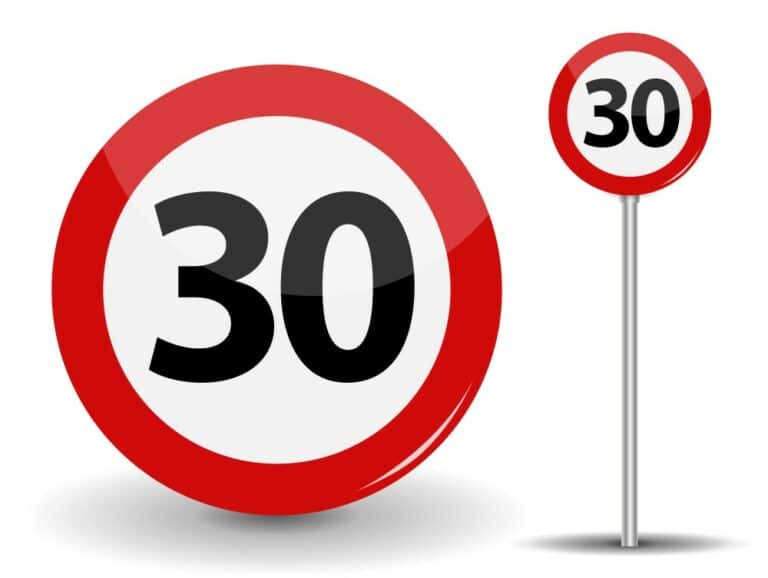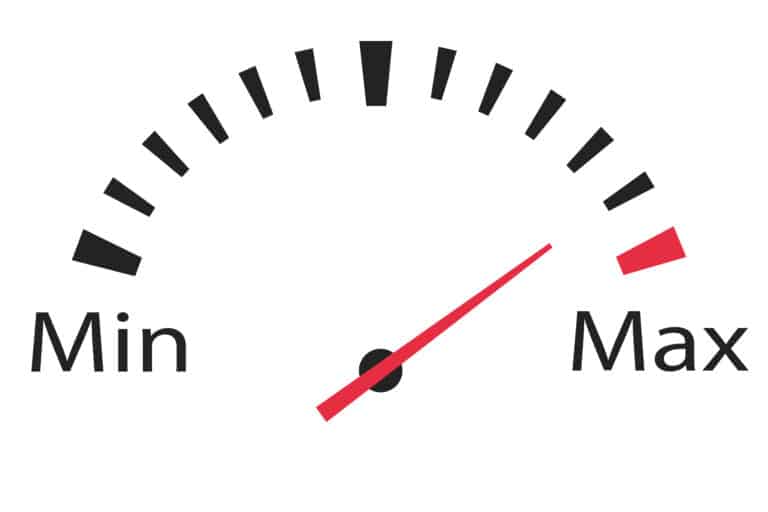The 30% ruling
Tax free allowance of 30 percent
The 30% ruling is a tax advantage for incoming employees who are working in the Netherlands. When the appropriate requirements are met, the employer is allowed to grant a tax free allowance amounting to 30 per cent of the salary which is subject to Dutch payroll tax. The consequence is that the taxable part of the salary is reduced to 70% and on top of that the 30% allowance is paid so that the total stays 100%. The tax free allowance is considered as compensation for extra territorial expenses a foreign employee has for working outside their home country. The employer can also reimburse these extra territorial expenses instead, but to be able to do this, the employee will need to supply all receipts to the employer so that they can be checked and then reimbursed. This is obviously a lot of extra work, especially if it needs to be done for multiple employees. It is therefor more common to apply for the 30% ruling. The 30% allowance will be included in the salary in such a way that the costs for the employer will not be higher, while the employee has a higher net salary.

Benefit of our experience with the 30% ruling!
Expatax can assist with the whole application procedure. We are very experienced with the 30% ruling and its application process as we have many companies as clients for who we take care of all the requests on behalf of their employees. We have more than 15 years experience and have filed thousands of applications with a high success rate.
Specific expertise
To qualify for the ruling the expatriate must be an employee who is hired from abroad or transferred by an employer to work in the Netherlands and who has specific expertise that is scarce or absent on the job market in the Netherlands.
Salary requirement
For the evaluation of whether an entered employee possesses specific expertise that is scarce or absent on the job market in the Netherlands, a minimum salary requirement was introduced on January 1, 2012. This salary requirement replaced the obligation to prove the level of education and relevant work experience.
| Required taxable salary | 2025 | 2024 | 2023 | 2022 | 2021 |
|---|---|---|---|---|---|
| Salary excluding allowance must be more than: (70% salary + 30% allowance = 100% gross) | € 46,660 (which is gross € 66,658) | € 46,107 (which is gross € 65,868) | € 41,954 (which is gross € 59,935) | € 39,467 (which is gross € 56,382) | € 38,961 (which is gross € 55,659) |
| For employees under the age of 30 who have a master degree the minimum required taxable salary (70%) is | € 35,468 (which is gross € 50,669) | € 35,048 (which is gross € 50,069) | € 31,891 (which is gross € 45,559) | € 30,001 (which is gross € 42,859) | € 29,616 (which is gross € 42,309) |
| Increase compared to previous year | 1.20% | 9.90% | 6.30% | 1.30% | 1.60% |
If you conduct scientific research at a specific research institution, a salary requirement is not applicable.
Tax free allowance can be less than 30%
Since the law requires a minimum taxable salary and doesn’t mention the gross salary and also states that under the 30% ruling a tax free allowance can be paid of up to 30%, it is possible to reduce the tax free allowance to a lower percentage as such that the minimum required taxable salary is met.
For employers and HR managers we have developed an online secure portal where the progress of each application for the 30% ruling can be followed, documents can be uploaded and downloaded and questions can be asked related to each individual application. You will get the information you are looking for, being able to access the portal 24/7.
Other requirements
There are other requirements that need to be met such as the employee having lived a minimum distance of 150 km from the Dutch border beforehand (during at least 16 months in the 24 months before start of work in the Netherlands). Also relevant is whether or not the employee has previously stayed in the Netherlands. And there are specific rules when the employee changes employer.
You have a valid grant for the 30% ruling. The duration is stated on the grant. If you stop working earlier, the 30% ruling will also stop.
An appendix to the employment agreement must be made. It’s not allowed to split the gross salary mentioned in the employment agreement in a taxable part of 70% and a non-taxable part of 30%. Instead the gross salary must be reduced to 70% on top of which a tax free remuneration of 30% can be paid. Consequence is that all the rights based on the gross salary will be reduced too like pension and social security.
Are you eligible for the 30% ruling?
Do our online survey to find out directly if you qualify for the 30% ruling.
Term
If your 30% ruling is granted after the 1st of January 2019 your grant is valid for a maximum of 5 years.
Related article: Changes to the 30% ruling as of 1 January 2019
If your 30% ruling was granted between the 1st of January 2012 and the 1st of January 2019 the duration of your grant is a maximum of 8 years. Due to a transitional arrangement, the end date of the grant may change, below you can see what your new end date will be. You will not be issued with a new grant stating this, so it is up to you and your employer to keep track of the new end date.
- End date year on your grant: 2019 or 2020 -> new end date: remains the same as stated on your grant
- End date year on your grant: 2021, 2022 or 2023 -> new end date: 31st of December 2020
- End date year on your grant: 2024 or later -> new end date: the end date on your grant minus 3 years
Tax Plan 2025 – changes to the 30% ruling
The phase out in steps of the maximum untaxed reimbursement of 30% to 10% as agreed in the Tax Plan 2024 will be reverted. Instead the percentage will be reduced from 30% to 27% which will be applicable for the maximum period of 5 years.
Tax Plan 2024 – changes to the 30% ruling
From 1 January 2024, the 30% ruling will be phased out as follows:
- For no more than the first 20 months, the tax-exempt allowance will not exceed 30% of the taxable salary;
- For no more than the following 20 months, the tax-exempt allowance will not exceed 20% of the taxable salary; and
- For no more than the remaining 20 months, the tax-exempt allowance will not exceed 10% of the taxable salary.
The term of the 30% ruling is up to 5 years (60 months). In case of a grant with a shorter duration than 60 months, the same percentages and periods apply. The right to apply the 30% ruling stops at the moment the term of the 30% decision has expired. This occurs if an incoming employee previously lived in the Netherlands. This means that if the duration is 4 years, the incoming employee is entitled to the tax-exempt allowance of maximum 30% of the taxable salary for a maximum of 20 months, the following 20 months to a tax-exempt allowance of maximum 20% of the taxable salary and the remaining 8 months is entitled to a tax-exemtp allowance of a maximum of 10%. An employee who has previously received a 30% allowance, may again qualify as an incoming employee after a break in the future.
Tax Plan 2023 – changes to the 30% ruling
The Tax Plan 2023 contains 2 changes for the 30% ruling:
- as of 2023: an annual choice for application of the 30% ruling or actual extraterritorial expenses.
- per 2024: a capping measure for incoming employees. Note: for some employees, this measure will only take effect as of 2026.
Related article: Changes related to your payroll administration in 2023
Do you have a question about the 30% ruling?
In our Knowledge Base we answered a lot of questions about the 30% ruling. Topics include the conditions, term, application, tax consequences etc.

30% ruling becomes 27% ruling – higher salary requirements
The 30% ruling will be reduced to a 27% ruling as of 1 Jnauary 2027. Also the required salary will increase.

From 30% ruling to 27% ruling – review expat ruling
Tax Plan 2025 mentions that the 30% ruling is changed to a 27% ruling but without further reduction of the percentage.

The 30% ruling in 2024 – what has changed?
As of 1 January 2024, the 30% ruling changed in several areas

New developments regarding the 30% ruling
New proposed changes to the 30% ruling: lower tax free allowance and taxation of assets

Court: the 30% ruling can not be continued if the period between end of employment and new employment contract is more than three months
The court ruled that one of the conditions of the 30% ruling is that there must be no more than three months between the end of employment with the old employer and the conclusion of the employment contract with the new employer.

Maximum salary proposed for the 30% ruling
Proposal is that as of 2024, the 30% ruling will be limited to a salary of a maximum of the Balkenende norm. In 2022 this was € 216,000.
Questions answered in our Knowledge Base
- 30% ruling ends when the employee is put on garden leave
- Is there a period of minimum stay in the Netherlands to avail the 30% ruling?
- Who is a young master for whom a lower salary is required?
- What is the deadine for filing the application?
- How long will the 30% ruling application take? When will I receive a reply?
- When I leave my employer do I get a confirmation from the tax authorities that the 30% ruling ends?
- Bank savings and 30% ruling. Foreign bank accounts. What to declare?
- 30% ruling and change of employer: granted for 8 or for 5 years?
- Where can I get a copy of the 30% ruling confirmation?
- Can the 30% ruling be renewed?
- Is it possible to get the 30% ruling when I work through my own limited company?
- I am young master with 30% ruling. What happens if I become 30? Will the salary requirement be higher?
- Is the 30% ruling applicable for dependents? Can the dependent spouse also exchange a foreign driving license?
- Can I keep the 30% ruling if I become self employed?
- How is the 30% allowance arranged between employer and employee?
- What are the consequences for my salary of the 30% tax ruling?
- I have been in the Netherlands before. Does this affect the maximum period I can get the 30% ruling?
- 30% ruling for a returning expat – how is the 25 year period calculated?
- Is the 30% ruling applicable if I have a temporary contract?
- Does a new application for the 30% ruling make a chance if a previous application has been rejected in the past (and more specifically, if the regulation changed since then)?
- The 150 km distance requirement in the 30%-ruling doesn’t lead to a clear overcompensation according to the Advocate General
- How can I prove that I satisfy the 150 km requirement?
- 25-years term of the discount scheme of the 30% ruling doesn’t lead to prohibited discrimination
- Continuation of the 30% ruling conflicts with the three months requirement
- 30% ruling for returning Dutch national
- What are the consequences for the unemployment benefit and company pension if I have the 30% ruling?
- Can I deduct the mortgage interest for my main residence if I have the 30% ruling?
- Can double housing costs be reimbursed tax free besides the 30% ruling?
- The 30% ruling is calculated on the wage of present employment. What does this include?
- Can the 30% ruling be granted retro active?
- Is the 30% ruling applicable on a redundancy payment?
- Am I eligible for the 30% ruling?
- Which costs can be considered to be extra territorial expenses?
- If the employee changes employer should a new 30% application be submitted?
- Is it possible to build up a pension on the 30% allowance?
- Does the 30% ruling also apply to persons who meet all the conditions but become permanent residents?
- Do I lose the 30% ruling if I get the Dutch nationality?
- International school fees and the 30% ruling
- Can the 30% ruling be applied in the payroll during the application?
- Can I still apply for the 30% ruling if I am already in the Netherlands?
- What are the conditions to qualify for the 30% ruling?
- What has changed with regards to the 30% ruling from January 1, 2012?
- Can the 30% ruling be less than 30%?




Hello,
I am moving to Netherland with my husband in June 2nd week. My employer has applied MVV visa for both of us.
However my husband also got a job in Netherlands and will start from August 1st.
We will arrive in the Netherlands and he will receive a resident card as dependent. Eventually, his employer will sponsor or transfer his resident card. Will he be eligible for the 30% tax benefit? Despite his employer’s willingness to give a 30% benefit, we are confused since he is arriving early with me and getting a dependent resident permit.
Could you please give some clarity on that.
Hello Everyone,
my name is Donald and i started living and working in The Netherlands from January 2020.
I am 25, i got a master degree in Italy and i’m eligible for the 30% Ruling.
I already applied for the 30%Ruling in April but i didn’t received a confirmation yet.
My question is : can i obtain it anyway if in the meantime i change the job ?
as far as i know yes, if you applied in time your next application will also be valid. but i’m not an expert 🙂
If you change job during the 30% ruling application procedure then you can also apply with your new employer. If the ruling is granted for your first job, it will also be granted for your next job when you still satisfy all conditions. So you don’t have to wait with changing employer until you have received confirmation from the tax authorities that the 30% ruling is granted.
*The employee has to transfer or be recruited from abroad to a Dutch employer
It is only possible to claim the 30% ruling if you are transferred or recruited from abroad. You have to prove that you were residing outside the Netherlands before you began your present employment in the Netherlands. Furthermore, the employee must not have lived within 150 km of the Dutch border for no more than eight months out of the last 24 months prior to the start of employment in the Netherlands.* – In my opinion I do not see that you are eligible for it.
From what I understand Donald started living and working in the Netherlands in January 2020. Before that he was living in Italy. He applied for the 30% ruling within 4 months after he started working. If Donald found the job before he moved to the Netherlands, which I assume, then he is recruited from abroad. If he found the job after he moved to the Netherlands then he indeed wouldn’t qualify. He would then be considered locally hired.
if I have just turned 30 (2020) and my salary is not going to increase in the coming year. do I risk losing my 30% tax rulling forever?
If in 2022, I respect the criteria again, can I benefit from the tax rulling even if for 1 year I no longer respected it?
Thank you very much for your reply ans expertise,
If your (monthly) salary doesn’t reach the required salary for employees of 30 years and older then you will indeed lose the 30% ruling. This won’t change if your salary will be sufficient in a future year.
See https://expatax.nl/knowledge-base/i-am-young-master-with-30-ruling-what-happens-if-i-become-30-will-the-salary-requirement-be-higher/
Solution could be to reduce the tax free amount to a lower percentage thus keeping the taxable salary above the required level: https://expatax.nl/knowledge-base/can-the-30-ruling-be-less-than-30/
Hello,
As a follow up question, if the salary increases within 3 months after reaching 30 years old with a new employer, can the employee reaply to 30% ruling?
Thank you for all the clarification provided so far!
Hey, so I have had the 30% since April 2016, and now I’m going to change jobs and residence status as well – from researcher to highly skilled migrant.
In most places, I understand that I would get the allowance max till April 2021 (5 years in total). I get lost a bit in this part: The 30%-facility can, subject to certain conditions, remain applicable to an employee who changes employer during the term of the decision. In that case, the new employer together with the employee must submit a new request.
Indeed I will fill in the form, but it would also be good to already know a bit more and to see if I can make the case a bit stronger. Any help would really be appreciated.
If you find a job within 3 months after your last work day with your previous employer then you can apply for the 30% ruling again with your new employer. The conditions are the same as stated in the article above.
The only thing which can happen is to lose some years . Ex. : I had the rule approved in sept 2018 and was applicable for 8 years ( till 2026). In august 2020 I’ve changed my job and my new employer submited a new request , and it seems that I’ve lost 3 years ( the rule is applicable only till aug. 2023). Is it legally correct?
What if you find job but after 4 months? Or 5 and being already in NL? I had it before then lost job thanks to colona. Can you still get it?
Only if you arrange a job within 3 months after the last physical work day with the previous employer you can apply for the 30% ruling with your new employer based on change of employer. If it takes more time to arrange a new job the 30% ruling will be lost (as long as you are in the Netherlands). Reason is that the government then assumes that your skills are no longer scarce.
I currently work at a global company in Turkey. I have worked in NL within a seconment program for four months in 2019 starting from April to August under the same employer as a short term employee. It has been 14 months since i came back to my country. Now i am considering to apply for a job in NL as starting from fisrt of October 2021. As a requirement of tax advantage, it stated that “the employee having lived a minimum distance of 150 km from the Dutch border beforehand (during at least 16 months in the 24 months before start of work in the Netherlands)”
According to requirement above, since i had working permit and residence permit for 4 months last year, could it be problem having this tax advantage?
The period you worked in the Netherlands is not taken into consideration to calculate whether you stayed outside the Netherlands long enough. So you will qualify for the 16 out of 24 months having lived more than 150 km from Dutch border requirement. The period you stayed in the Netherlands however does affect the maximum term you will get the 30% ruling when you come to work in the Netherlands again. This maximum term will be reduced with 4 months.
Hi Arjan,
Wondering if my situation would be similar here… I was living and working in the Netherland between April ’19 and August ’20, benefiting from 30% ruling. I moved away, deregistered from the Netherlands and now work in a different company in Poland. I would like to come back to NL in some time but I though it has to be at least 16 months to even apply for the ruling again (despite of matching other requirements).
So is my understanding correct that it doesn’t matter, just the time I already benefit from the ruling will be extracted from the 5 years I could benefit from it?
Thank you
Correct Ania, just the time you already benefited from the ruling will be extracted from the maximum period of 5 years. The fact that you return to the Netherlands within 16 months is not a problem.
In 2019, my gross salary is below the minimum required gross salary. Hence, my employer lowered my 30% allowance to about 25%.
In 2020, my gross salary is higher than the minimum required gross salary. However, my employer continues to use 25% allowance, instead of 30%. This means that my salary is being taxed more.
Can this tax difference be claimed back from the tax return of 2020?
Good to see that the employer reduced the tax free allowance to a lower percentage so that the ruling can be used. It depends on the agreement between you and your employer if they have to change the percentage to a higher number when your salary goes up. There is not an automatic right. Only your employer can make this calculation. It is not possible to claim any difference in your personal tax return.
With my current employer, I don’t have 30% ruling as my taxable salary is not meeting the condition of 30% ruling. Now I am considering to change the employer. Can I avail the benefits of 30% ruling in future if my salary meets the condition? Would there be any implication as I have been living in the Netherlands for the past 2 years without 30% ruling benefits? What would be the minimum taxable salary? It is based on the year when I moved to the Netherlands or the current year?
In order to qualify for the 30% ruling you must satisfy all conditions the moment you arrive in the Netherlands. If your salary was too low at that moment you indeed didn’t qualify. A salary increase at a later moment won’t change this as long as you are living in the Netherlands. The salary level must be reached at any moment. It is an ongoing check.
Hey all, question: can I lose the granted 30% ruling if I stay more than 4weeks outside Netherlands? I’m planning to visit my home country during Christmas and stay 4weeks in total.. thanks in advance!
Hi All,
If I start to work in Amsterdam in January or February 2021 if I still will be eligible to receive a 30 % ruling?
thank you,
Hi,
Does the time I spent studying in the Netherlands 2010 – 2014 (four years) get deducted from my 30% ruling period – I.e. reduced from 5 years to 1?
I fulfil all of the 30% ruling criteria in terms of time spent outside of NL (2+ years) prior to being recruited here etc.
Any help/guidance would be greatly appreciated if you have experienced this or know of similar situations.
I applied for the 30% ruling in September, after recently starting my new job here in the Netherlands.
Thanks in advance
Yes, the time you studied in the Netherlands will be deducted from the maximum period you can get the 30% ruling. The rules look at the period of previous stay, not at the period of previous use of the 30% ruling.
Hello,
My wife is a Dutch Citizen and I come to Netherlands as a member of family reunion, can i benefit from %30 ruling after finding a job in Netherlands that fits the minimum salary requirements.
Best Regards
Hi Dogu. To qualify for the 30% ruling you must be an incoming employee, which means that you must have secured a job in the Netherlands before moving here. If you find a job after you arrive in the Netherlands then you are hired locally and thus not an incoming employee and then you won’t get the 30% ruling.
I am currently in the Schengen Area (distance far greater than 150 km of Netherlands), and I am basically from Asia. I am planning to come to the Netherlands on Job search VISA.
Therefore, my question is that “Will I qualify for 30% ruling on job search VISA (obviously after getting job)”?
Hi Elijah. To qualify for the 30% ruling you must be an incoming employee, which means that you must have secured a job in the Netherlands before moving here. If you find a job after you arrive in the Netherlands then you are hired locally and thus not an incoming employee and then you won’t get the 30% ruling. If you studied in the Netherlands and have an address here you are treated as locally hired if you find a job during your job search visa.
My husband has the 30% tax ruling and both him and myself have exchanged our South African Drivers License. Will our 20 year old STUDENT DAUGHTER, who is dependant on us and registered at our address, be able to exchange her Drivers License as well.
Yes, she can also exchange her drivers license to a Dutch drivers license since she is registered at the same address as your husband who has a valid 30% ruling. See also https://www.rdw.nl/nrd/soorten-aanvragen/buitenlands-rijbewijs-omwisselen (translate to English)